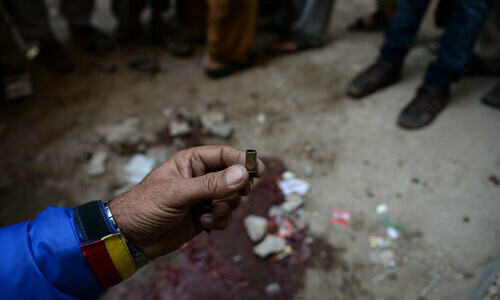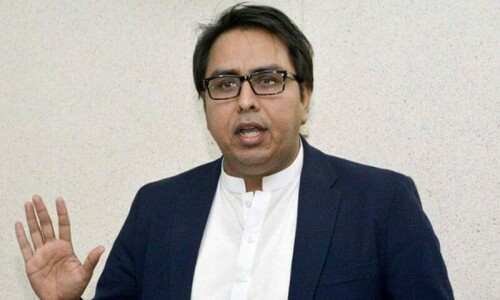LAHORE: The Punjab health authorities on Tuesday finalised guidelines for home-isolation of Covid-19 patients for approval from Chief Minister Usman Buzdar.
The new guidelines were shared at a meeting of the health department which was participated in by the representatives of Corona Expert Advisory Group and the World Health Organisation. The guidelines will be sent to the chief minister for final approval.
It was declared that the PCR-positive, asymptomatic and patients with mild symptoms in whom hospitalisation is not required should be advised home isolation (where feasible) as per given criteria.
Who Can Be Home-Isolated:
i - Asymptomatic persons (confirmed on PCR), and patients with mild symptoms, of age less than 60 years and without underlining unstable chronic conditions such as lung and heart disease, renal failure or immunosuppression may be cared for at home.
The same will be sent to CM for approval
ii - If and where feasible a communication link with healthcare provider or public health personnel, or both, should be established for the duration of the home-care period.
iii - Patient living alone should not be allowed home-isolation.
Steps To Follow:
i - Patients and household members should be educated about personal hygiene, basic IPC measures and how to care as safely, as possible to prevent the infection from spreading to household members and contacts.
ii - All persons to be home isolated should be provided written instructions regarding monitoring of symptoms and establishing contact with healthcare provider via telemedicine.
Placement:
i - Place the person in a well-ventilated single room (i.e. open windows and an open door) preferably with attached bathroom.
ii - Ensure that shared spaces (i.e. kitchen, bathroom, lounge, etc) are well ventilized (keep windows open).
Movement Restrictions:
i - Limit the movement of the person in the house and minimize shared space.
ii - The household members should stay in different room and if that is not possible the patient should be shifted to the government isolation centre.
iii - The isolated person should avoid preparing, cooking and serving food to other family members.
iv - Only an assigned family member should be tasked with taking care of the person in isolation.
v - The visitors should not be allowed until the completion of isolation period.
Infection prevention practices for patient and care giver:
i - Perform hand hygiene frequently at least for 20 seconds
ii - Hand hygiene should also be performed before and after preparing food, before eating, after using toilet and whenever hands look dirty.
iii - If hands are not visibly dirty, an alcohol based hand-rub/sanitizer may be used while for visibly dirty hand use soap and water.
iv - When washing hands with soap and water, it is preferable to use disposable paper towel and hand should be air-dried.
v - If towel is used then, it should not be shared.
Use of Protective Mask:
i - To contain spread by droplets, a surgical mask should be provided to the person in isolation and worn as much as possible and changed daily.
ii - Individuals who can’t tolerate a surgical mask should practice rigorous respiratory hygiene (i.e. while coughing mouth, and nose)should be covered with a disposable paper tissue or cough in flexed elbow.
iii - Items used to cover the mouth should be discarded properly.
iv - Family members should wear a surgical mask that covers their mouth and nose when in same room as the person in isolation.
Disinfection of environment:
i - Clean and disinfect frequently touched surfaces in the designated room for isolation (e.g. bed frames, tables, door handles, knobs, switches etc.) daily with 1% sodium hypochlorite solution. (Use bleach powder 1 TSF in one litre of water).
ii - Clean and disinfect bathroom and toilet surfaces at least once daily.
iii - Regular household soap or detergent should be used first for cleaning, and then after rinsing, disinfect with regular household bleach solution/phenolic disinfections.
Special Instructions:
i - Person in isolation needs to stay away from elderly people, pregnant women, children and persons with co-morbidities within the household.
ii - Under no circumstances person in isolation should attend any social/religious gathering (e.g. wedding, condolences,etc.) till the completion of isolation period.
iii - Patients should use medicine regularly as prescribed by the physician and continue with regular prescription medication if any.
Testing and Re-testing of Isolated person:
i - Repeat testing should be done at day 10 of isolation (where feasible).
ii - To end isolation, a previously tested positive patient should have two negative tests.
iii - For the test positive at day 10, repeat test is to be conducted at day 7 of the last test.
iv - Where testing is not possible, the World Health Organisation recommends that confirmed patient should remain isolated for an additional two weeks after symptoms are resolved.
Published in Dawn, May 6th, 2020















































